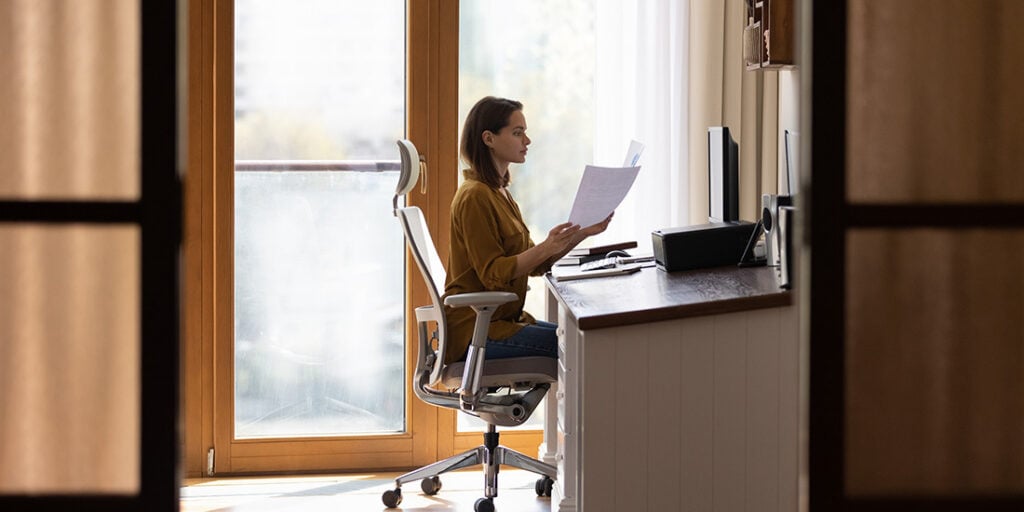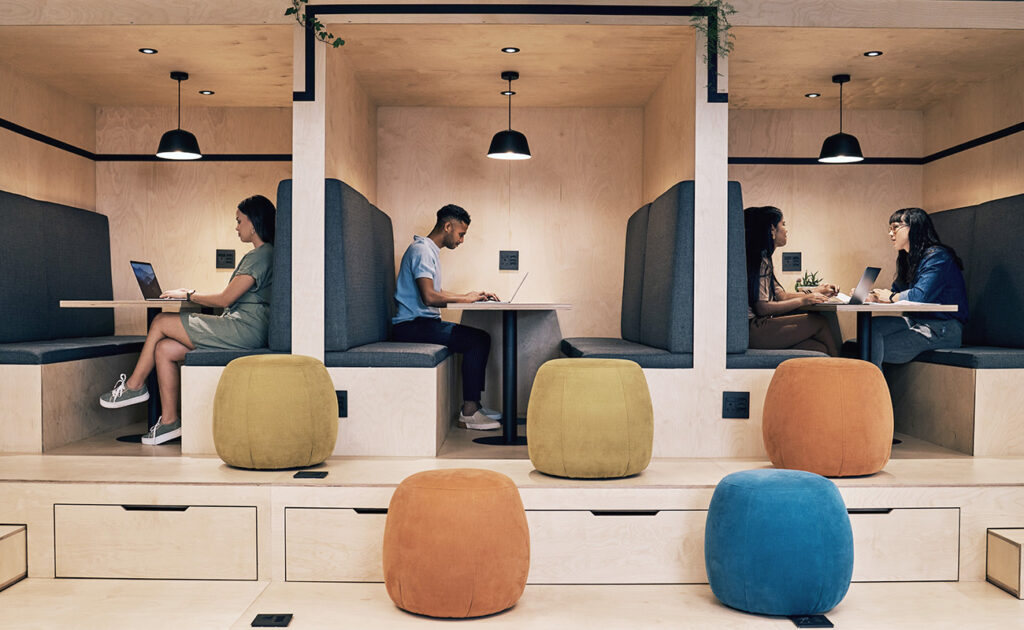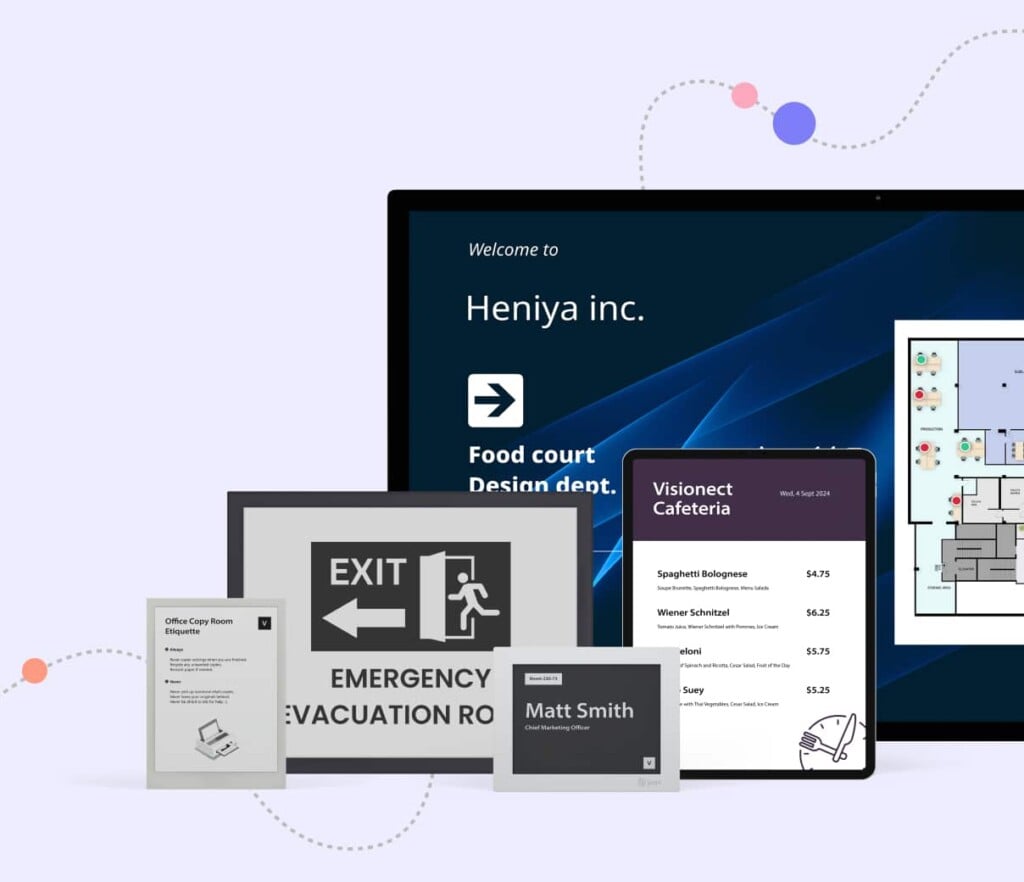Office hoteling software: Your complete 2026 guide
Did you know that despite widespread space sharing initiatives, CBRE’s Workplace & Occupancy Research found that average office utilization remained under 40% through the first half of 2023? Companies have successfully reduced their real estate footprints, yet most office space still sits empty during actual workdays.
This happens because hybrid work creates unpredictable attendance that traditional workspace planning cannot handle. One day your office feels like a ghost town, the next employees are searching for any available desk. People have no way to know which desks will be free or whether they’ll even find workspace on busy days.
Office hoteling software fixes this by letting employees reserve specific workstations in advance, eliminating both the morning desk search and the risk of arriving to a full office. It also provides clear data on actual space usage, showing you exactly how much workspace you really need versus what you’re currently paying for.
Quickly jump to:
- What is office hoteling
- Office hoteling best practices
- Essential office hoteling software features
- ROI and business case for office hoteling software
- Popular office hoteling software platforms
- Joan’s integrated office hoteling software solution
- FAQs about office hoteling software
What is office hoteling
Office hoteling software ends the morning desk search by letting employees reserve specific desks in advance. Through visual floor plans and mobile apps, workers secure guaranteed desk space before they even leave home.
Unlike traditional assigned seating where employees own permanent desks regardless of usage, or hot desking’s first-come, first-served approach that can leave latecomers without workspace, office hoteling provides the perfect middle ground.

Office hoteling best practices
1. Start with clear communication. Successful office hoteling implementation requires thoughtful change management that addresses both technical setup and cultural adaptation. Employees need clear communication about new workplace policies before the system launches.
2. Set reasonable booking windows. Establish reasonable booking windows that balance flexibility with planning needs. Too short a window creates daily stress as employees compete for limited space. Too long a window reduces flexibility and can lead to excessive advance bookings that block availability.
3. Create hoteling etiquette guidelines. Create clear hoteling etiquette guidelines that promote respectful space sharing. These policies should address desk cleanliness expectations, personal item storage, and courtesy practices for shared workspace environments. Employees need to understand that hoteling desks are temporary assignments, not personal territories. Check out our desk sharing etiquette guide that covers the real-world details to make shared workspaces actually work.
4. Measure success holistically. Measure success through both quantitative metrics and qualitative feedback. Track utilization rates, booking completion rates, and space efficiency improvements. Also gather employee satisfaction surveys and informal feedback to understand how the system affects daily work experiences.
Essential office hoteling software features
Look for platforms that cover the essential booking functions employees need while providing analytics and insights for space optimization in the backend.
- Calendar integration. Book desks directly from existing scheduling tools without switching apps or learning new systems.
- Visual floor plans. Upload your office layout and visualize available desks in real-time on your actual floor map.
- Team coordination. See where your colleagues are sitting and reserve nearby desks for better collaboration.
- Granular desk rules. Set specific access permissions and occupancy limits for individual desks, teams, or entire areas.
- Mobile-first experience. Fast loading, clear display, and one-touch booking changes since employees primarily use their phones.
- Analytics and reporting. Track occupancy patterns, peak usage times, and collaboration trends to optimize space allocation decisions.
- Scalable workplace platform. Start with desk booking and easily add meeting room reservations, visitor management, and digital signage as your workplace needs grow.

ROI and business case for office hoteling software
Real estate costs consume a massive portion of most company budgets. Office hoteling software addresses this expensive inefficiency by turning underused space into measurable savings.
The financial impact appears in three areas:
- Optimized space usage. When you know exactly how many desks you actually need versus how many you currently pay for, the savings become clear. Office hoteling data reveals true utilization patterns, enabling smarter real estate decisions that reduce square footage while improving employee experience.
- Eliminated daily friction. Time spent searching for desks translates to lost productivity across your entire workforce. Employees who can reserve workspace in advance start their day productively instead of wandering through office floors looking for available spots.
- Streamlined operations. Manual desk management creates administrative burden and workplace conflicts. Automated hoteling systems handle reservations, track usage patterns, and provide insights for future planning without requiring constant facility manager intervention.
Download our workspace utilization guide for detailed ROI calculation frameworks and occupancy benchmarks.
Popular office hoteling software platforms
The office hoteling software market includes numerous providers, each with different strengths and approaches to desk booking functionality.
Choose office hoteling software based on what your employees will actually use. Mobile-friendly booking matters most since people reserve desks from their phones. Calendar integration determines whether desk booking feels natural or becomes another annoying task.
Look for platforms that provide useful reporting data, responsive customer support, and clear pricing. All-in-one workplace platforms work best because your team gets one system for everything – desk booking, meeting rooms, and visitor check-ins – instead of juggling multiple apps.

Joan’s integrated office hoteling software solution
Joan handles all your workplace booking needs in one system. Book desks, meeting rooms, and visitor check-ins without switching between apps that never quite sync up properly.
Your employees get a seamless experience whether they’re reserving workspace, coordinating with teammates, or managing guests. Office managers gain unified analytics and control without vendor headaches or training complexity.
The result is fewer frustrated employees searching for desks and less time wasted on administrative busywork, while you actually use your office space efficiently and save money on real estate costs.
Ready to simplify your workplace coordination? Talk to our team about setting up office hoteling that actually works for your people.
FAQs about office hoteling software
What are the main benefits of office hoteling software?
Office hoteling software delivers real cost savings through smarter space use. Companies routinely eliminate underused workstations and redirect those real estate dollars to growth initiatives.
More importantly, it solves the daily frustration of desk hunting. No more wandering around looking for a spot or settling for cramped corners. Employees get the workspace they need, when they need it. Facility managers stop playing referee and start focusing on what actually moves the business forward.
When should my organization implement office hoteling software?
When office occupancy varies dramatically throughout the week, desk booking software becomes essential. If people work from home regularly and office attendance swings wildly throughout the week, traditional assigned seating stops making sense.
The tipping point is when employees complain about finding desks or you suspect you’re paying for empty space. If your team is growing but your office isn’t, booking software helps you do more with what you have.
How do I ensure employees actually use the office hoteling software?
Keep it simple. If booking takes more than a few clicks, people won’t do it. Choose software that works with the tools they already use: their calendar, their phone, their existing workflow.
What are the best practices for implementing office hoteling software?
Start with clear expectations, not rigid rules. People need to know how the system works without feeling micromanaged.
For the complete playbook on desk sharing etiquette, booking protocols, and handling peak demand, check out our guide. It covers everything from reservation windows to keeping workspaces clean.
How does office hoteling software scale as our organization grows?
Look for platforms that bundle everything: desk booking, meeting rooms, visitor management, and digital signage, so you’re not juggling multiple vendors as you expand. The best systems give you better data as you grow, turning usage patterns into strategic insights about your real estate needs.